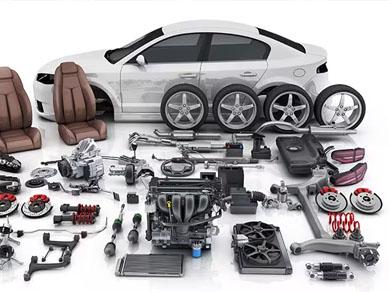The Indian automotive industry is set to become the third-largest globally by 2030, showcasing its significant impact on the global market. Known for its rapid growth and robust expansion, the Indian automotive Original Equipment Manufacturer (OEM) and component industry is one of the most dynamic sectors worldwide. In 2022, the industry was valued at over USD 100 billion, and it is expected to more than double to over USD 200 billion by 2030. This impressive growth reflects the sector’s critical role in India’s economic development and its potential as a global automotive hub.
Click: https://growbetpartners.com/auto-components/
Key Factors Fueling Growth:
Increasing Domestic Demand:
The rising middle class, urbanization, and growing disposable incomes are driving increased demand for vehicles in India. The preference for personal mobility, coupled with an expanding population, is boosting sales across segments, including passenger vehicles, commercial vehicles, and two-wheelers.
Government Initiatives and Policies:
Supportive government policies, such as the Automotive Mission Plan 2026 and the Faster Adoption and Manufacturing of Hybrid and Electric Vehicles (FAME) scheme, are propelling the industry’s growth. These initiatives aim to promote manufacturing, enhance technology adoption, and support the development of electric vehicles (EVs).
Technological Advancements:
Technological innovations in the automotive sector are revolutionizing manufacturing processes and product offerings. Advances in electric mobility, connected vehicles, autonomous driving, and smart manufacturing are enhancing efficiency, reducing costs, and improving product quality.
Strong Export Potential:
The Indian automotive industry is increasingly focusing on exports, leveraging its competitive advantages in manufacturing and engineering. The sector’s ability to produce high-quality, cost-effective automotive components and vehicles is driving export growth, making India a preferred sourcing destination for global automakers.
Rising Investments:
Significant investments from both domestic and international players are fueling the industry’s expansion. Global automotive giants are setting up manufacturing plants and R&D centers in India, while Indian companies are also investing heavily in capacity expansion, technology upgrades, and new product development.
Challenges and Opportunities:
Supply Chain Management:
The industry faces challenges related to supply chain disruptions, especially in the context of global semiconductor shortages and other critical components. However, efforts to localize supply chains and enhance logistics infrastructure are creating opportunities for better management and resilience.
Sustainability and Environmental Regulations:
The push towards sustainable practices and adherence to stringent environmental regulations are essential for long-term growth. The industry’s shift towards electric vehicles and green manufacturing processes is not only addressing regulatory requirements but also catering to the growing consumer preference for eco-friendly options.
Skill Development and Workforce Training:
The rapid technological advancements in the automotive sector necessitate a skilled workforce capable of handling sophisticated manufacturing and engineering tasks. Investing in skill development and training programs is crucial for maintaining competitiveness and fostering innovation.
The Indian automotive industry’s projected growth to over USD 200 billion by 2030 underscores its pivotal role in the global market. With strong domestic demand, supportive government policies, technological advancements, and rising investments, the sector is well-positioned for sustained growth and global leadership. Businesses and stakeholders in the industry must focus on innovation, sustainability, and strategic partnerships to capitalize on the burgeoning opportunities and navigate the evolving landscape effectively.
Contact Us
Mob- +91 9833967579
Email: info@growbetpartners.com
Website: https://growbetpartners.com

